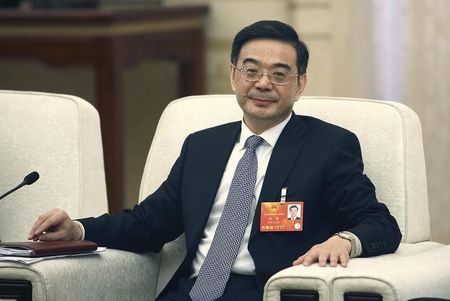BEIJING (Reuters) - China's top judge has said that foreigners will be regularly allowed into courts to listen to cases, state media reported on Thursday, as the government embarks on legal reform at a time of public discontent over many perceived miscarriages of justice.
The announcement by Zhou Qiang, president of the Supreme People's Court, could have implications for foreigners and foreign businesses, which have increasingly become embroiled in lawsuits in China and complained about China's secretive judicial system.
Chinese courts typically refuse to release rulings, court dates and other details of lawsuits, and foreign reporters are usually blocked from attending human rights trials.
Zhou made the announcement to ambassadors and officials from 20 countries and regions at a "court open day", saying the Supreme People's Court "feels it is important to communicate with foreign countries on judicial affairs", the state-run China Daily newspaper said.
"We've realized the need to invite ambassadors and foreign professionals when we tackle foreign-related disputes and provide legal aid for foreign litigants," Zhou said, adding that this was also necessary to improve Chinese judicial work and develop international legal cooperation.
"More foreigners will be allowed to visit our court and listen to trials and cases involving foreign companies or citizens."
In July, the United States and Britain raised concerns about access to the trial of a foreign couple linked to drugmaker GlaxoSmithKline Plc after Chinese authorities reportedly said the trial would be closed to the public. A Chinese court said it would publicly prosecute them, though foreign reporters were barred from the trial.
The article did not make clear whether foreigners would be allowed to sit in on politically sensitive cases. It also did not say whether foreigners would only be allowed into the courts on specific "open days".
Zhou also asked grassroots courts to open their doors to foreigners, adding that the top court would supervise local judicial bodies in enforcing verdicts involving foreigners or foreign corporations, the newspaper said.
Analysts say President Xi Jinping's government is willing to reform its court system as long as it doesn't threaten the ruling Chinese Communist Party's overall control.

In a sign of the government's interest in legal reform, the Supreme People's Court said last year it would eliminate the use of torture to extract confessions, stop local officials from interfering in legal decisions and allow judges to make their own decisions.
(Reporting by Sui-Lee Wee; Editing by Nick Macfie)
